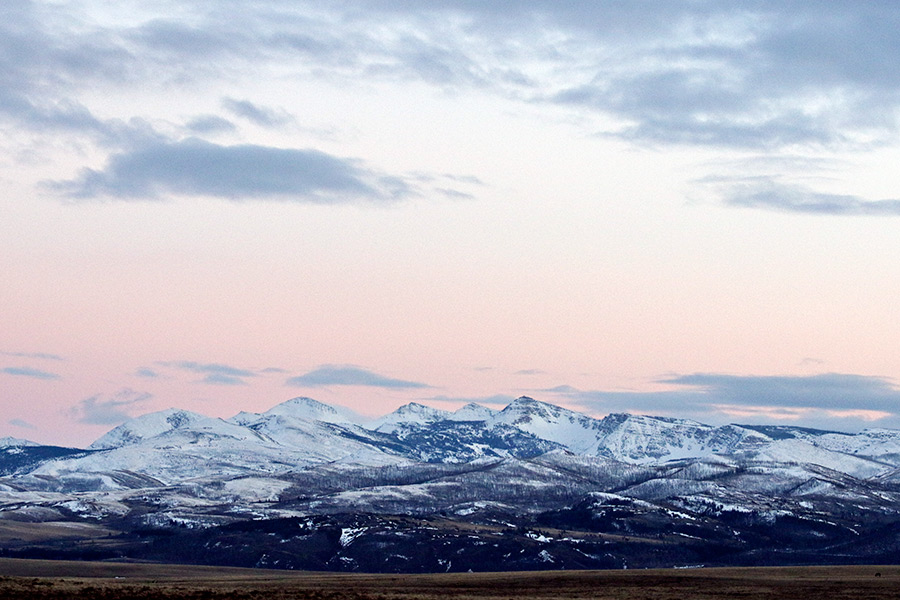A panel of federal circuit judges is allowing the Pikuni Traditionalist Association to press on in its decades-long battle to defend the Badger-Two Medicine area from oil and gas leases that members of the Blackfeet Nation say were illegally granted on land sacred to the tribe.
It’s the latest turn in a labyrinthine legal fight that has twisted on for years as Blackfeet leaders and conservation groups have worked to furnish permanent protections on the 130,000-acre Badger-Two Medicine, an area flanking Glacier National Park that holds cultural and ecological significance to members of the Blackfeet Nation.
The last two remaining leases were originally canceled by the Interior Department under President Barack Obama, but U.S. District Judge Richard J. Leon ruled last September that action was improper. Last November, attorneys representing the Interior filed a notice of appeal challenging Judge Leon’s decision to reinstate the leases.
In April, in a dramatic change of course, attorneys representing the U.S. Department of the Interior filed paperwork announcing they will not defend the cancellation of one of the remaining leases held by W.A. Moncrief Jr. of Texas, though they are defending the cancellation of a lease held by Solenex LLC of Baton Rouge, La.
But the Pikuni Traditionalist Association, an organization of Blackfeet who practice ancient tribal rights and vow to block oil and gas development in the Badger-Two Medicine, have adjoined itself to the case from the beginning, and pledged to press on in its defense of the Moncrief lease cancellation even if the Interior is backing down.
In its response, government lawyers argued the group had no right to defend the lease cancellation since the government was bowing out.
On July 3, however, a panel of federal judges with the U.S. Court of Appeals for the District of Columbia allowed the Pikuni Traditionalist Association to present its case before the court.
“Essentially what this means is that we are going to get our day in court, Timothy Preso, an attorney for Earthjustice representing the Pikuni Traditionalist Association, said. “And the government’s effort to deny us that day in court was shut down. The government was trying to shut down the whole process before we could even make our case. We are saying that the District Court got it wrong and the lease cancellation was lawful, and the court is saying it’s going to listen to those arguments. We are not going to cut short the process. It’s a procedural order and it’s not the end of the story, but we get to press on and make our case.”
The Pikuni, southernmost of the Blackfeet tribes, were granted millions of acres by treaty for a reservation that stretched from the Continental Divide east across all of Montana, north of the Missouri River. By 1896, the buffalo had all been killed off and the Pikuni, now called simply the Blackfeet, were starving. They sold off most of their reservation for food and supplies, retaining only the right to hunt, gather lodge poles and worship in the Badger-Two Medicine.
John Murray, tribal historic preservation officer for the Blackfeet Nation, said the government’s decision to back away from the Moncrief case is a setback in the tribe’s ongoing quest to defend the Badger, but he expressed confidence in the path forward, which will include negotiations with the lease-holder.
“The Badger-Two Medicine is sacred land for the Blackfeet Tribe, and it’s a cornerstone of our history and our culture,” Murray said. “This is an irreplaceable landscape, and we are strongly disappointed to see the Department of the Interior go back on its commitment to safeguard this land. We will keep fighting to make sure the Badger-Two Medicine stays wild, beautiful, and protected for our people, our children, and our grandchildren.”
The Pikuni Traditionalist Association must submit its briefs by Aug. 15.
